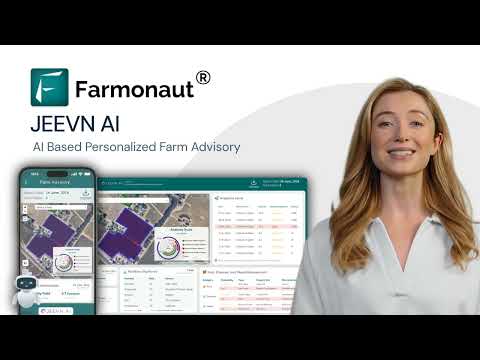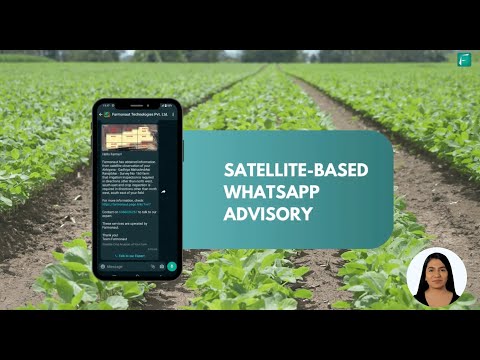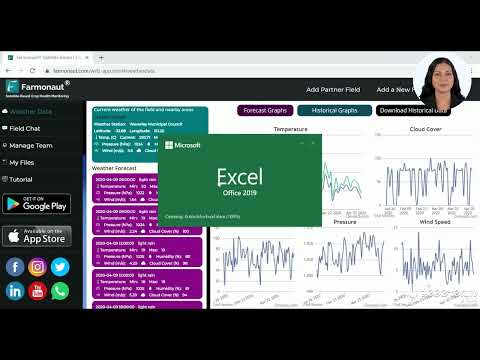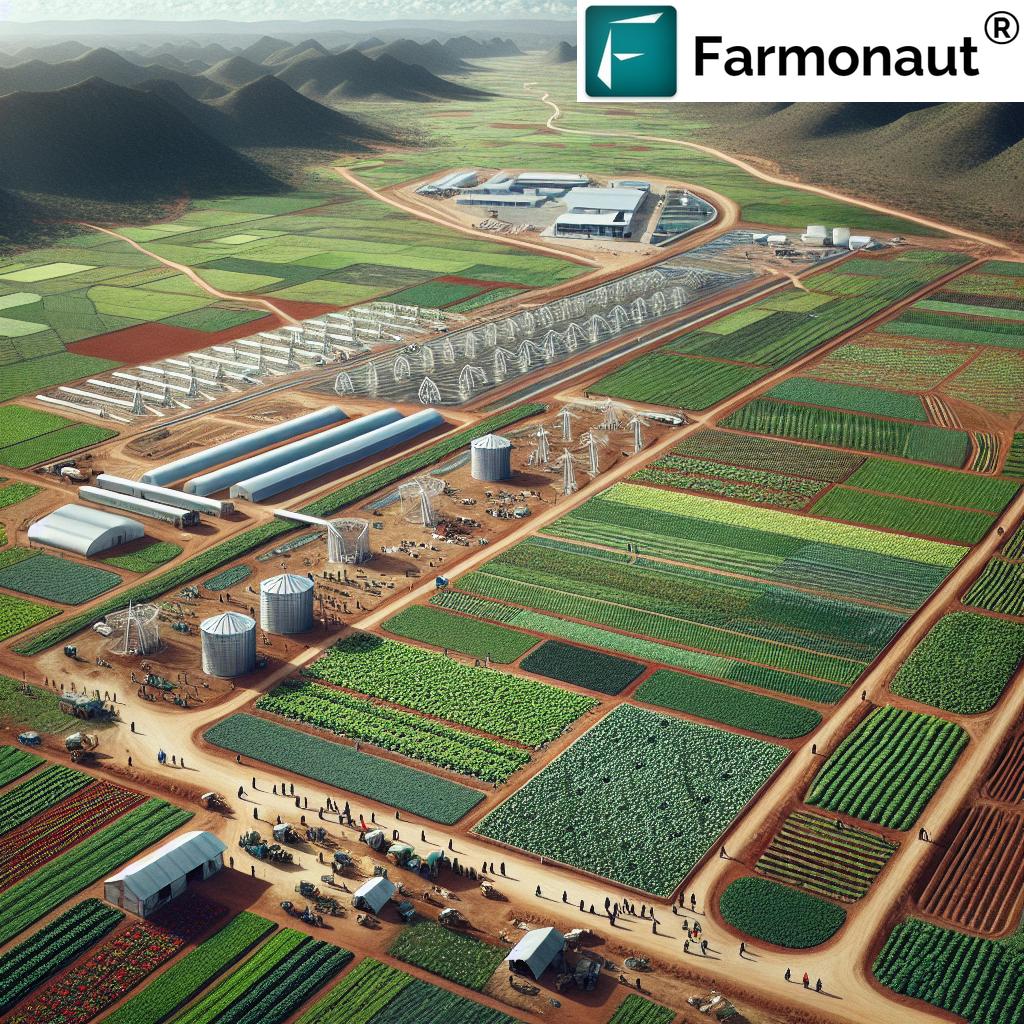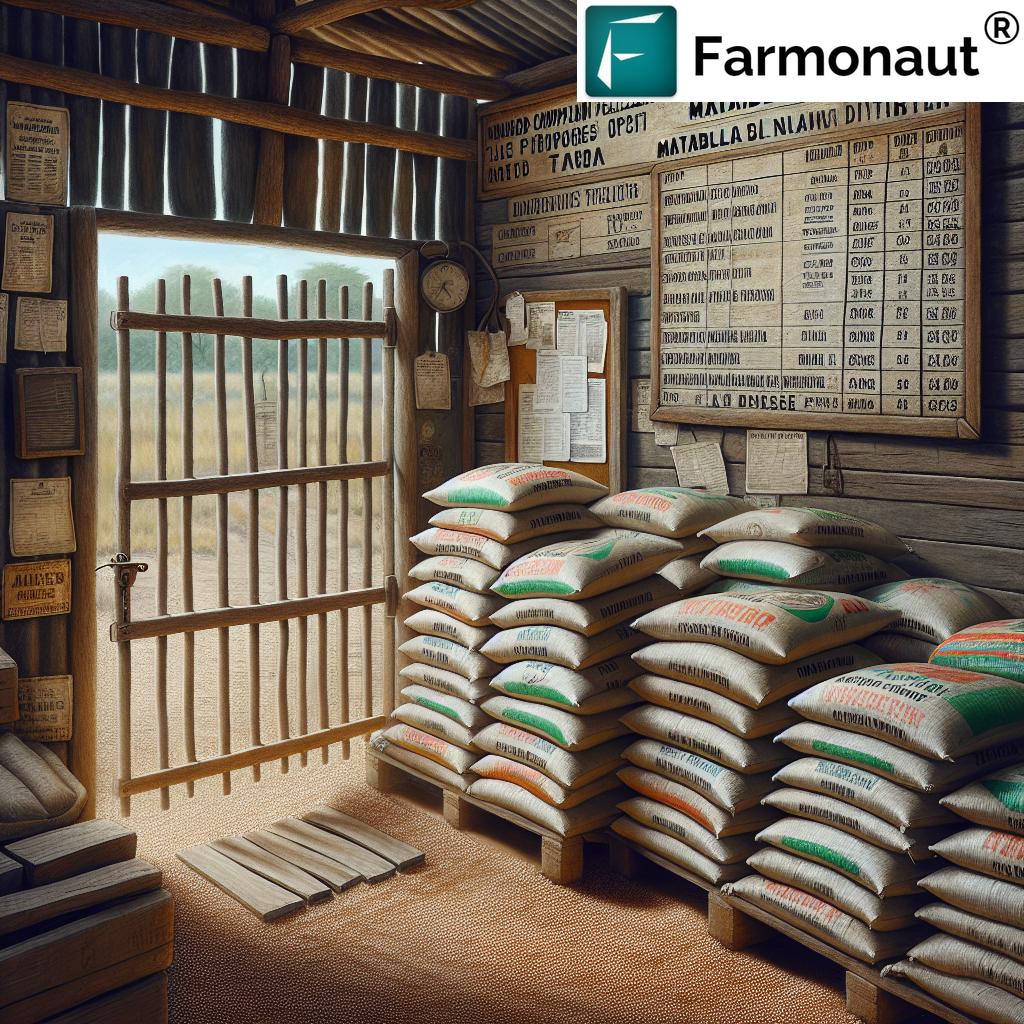Revolutionizing Nigerian Agriculture: How Digital Extension Services Are Empowering Smallholder Farmers

“Digital extension services in Nigeria have reduced the extension-farmer ratio gap by up to 70% in some regions.”
In the heart of Nigeria’s agricultural landscape, a quiet revolution is taking place. Digital agricultural extension services are transforming the way smallholder farmers access crucial information, bridging gaps that have long hindered productivity and growth. As we delve into this transformative journey, we’ll explore how innovative agritech solutions and sustainable agriculture practices are reshaping Nigeria’s farming future.
The Challenge: Bridging the Extension-Farmer Gap
Nigeria’s agricultural sector faces a significant challenge: an overwhelming extension-farmer ratio of 1:10,000, far from the 1:1,000 recommended by the Food and Agriculture Organisation (FAO). This disparity has long been a stumbling block, limiting farmers’ access to vital information and advisory services. In a country where smallholder farmers contribute up to 90% of food production, addressing this gap is crucial for national food security and economic resilience.
The Digital Revolution in Agricultural Extension
Enter digital agricultural extension services (DAES), a game-changing approach that leverages technology to bring critical knowledge directly to farmers’ fingertips. These innovative solutions are reshaping the agricultural advisory landscape in Nigeria, offering real-time, localized support through smartphones and other digital platforms.
- Real-time crop monitoring and advice
- Weather forecasts and climate-smart farming techniques
- Market information and pricing trends
- Pest and disease management strategies
By harnessing the power of digital technology, we’re witnessing a transformation in how information flows from agricultural experts to the farmers who need it most. This digital revolution is not just about technology; it’s about empowerment, sustainability, and the future of food production in Nigeria.
The Role of Public-Private Partnerships
At the heart of this agricultural transformation are innovative public-private partnerships (PPPs) that bring together the strengths of government agencies, private sector innovators, and development organizations. A recent two-day summit in Lagos, organized by the Bill & Melinda Gates Foundation (BMGF) and the African Forum for Agricultural Advisory Services (AFAAS), highlighted the potential of these collaborations.
The summit focused on creating a sustainable PPP model for Digital Agricultural Extension Services, aiming to:
- Validate transformative plans for empowering smallholder farmers
- Address barriers like limited access to advisory services
- Develop financially sustainable, user-centered systems
- Align with Nigeria’s goals for agricultural self-sufficiency
These partnerships are crucial in overcoming the fragmented nature of private sector solutions and the underfunding of public extension systems. By combining resources and expertise, PPPs are paving the way for a more robust and effective agricultural advisory framework.
Innovative Delivery Methods
The success of digital agricultural extension services lies in their innovative delivery methods. These approaches make real-time, localized support accessible to farmers, boosting productivity and market access for key value chains like maize, cassava, and cocoa.
- Smartphone Applications: User-friendly apps provide farmers with instant access to agricultural advice, market prices, and weather forecasts.
- SMS and USSD Services: For areas with limited smartphone penetration, SMS and Unstructured Supplementary Service Data (USSD) ensure that even basic mobile phones can receive crucial agricultural information.
- Interactive Voice Response (IVR): This technology allows farmers to access information through voice calls, overcoming literacy barriers.
- Satellite-based Monitoring: Advanced satellite technology provides farmers with insights into crop health, soil moisture, and potential pest infestations.
Explore Farmonaut’s innovative satellite-based farm management solutions:
Empowering Smallholder Farmers
The impact of digital agricultural extension services on smallholder farmers cannot be overstated. These services are not just about providing information; they’re about empowerment. By giving farmers access to crucial knowledge and resources, we’re enabling them to make informed decisions that can significantly improve their yields and livelihoods.
- Enhanced decision-making in crop management
- Improved access to markets and fair pricing
- Reduced vulnerability to climate change impacts
- Increased adoption of sustainable farming practices
The transformation is particularly significant for women farmers, who often face additional barriers in accessing agricultural information. Digital services are helping to bridge this gender gap, ensuring that women have equal access to the knowledge and resources they need to thrive in agriculture.
“Over 60% of Nigerian smallholder farmers now access real-time agricultural advice through smartphones and other digital technologies.”
Climate-Smart Farming Techniques
As climate change poses increasing challenges to agriculture, digital extension services are playing a crucial role in promoting climate-smart farming techniques. These innovative approaches help farmers adapt to changing weather patterns, mitigate environmental impacts, and build resilience in their farming practices.
- Precision agriculture for optimal resource use
- Drought-resistant crop varieties and water conservation methods
- Integrated pest management strategies
- Soil health management and conservation agriculture
By integrating climate-smart practices into digital advisory services, we’re not only helping farmers adapt to climate change but also contributing to broader environmental sustainability goals.
Overcoming Barriers to Agricultural Transformation
While the potential of digital agricultural extension services is immense, several barriers still hinder full-scale adoption and impact. Addressing these challenges is crucial for realizing the transformative potential of these technologies.
- Digital Literacy: Many farmers, especially in rural areas, may lack the skills to fully utilize digital tools.
- Infrastructure Gaps: Limited internet connectivity and electricity access in some regions can hinder the reach of digital services.
- Language and Cultural Barriers: Ensuring that digital content is available in local languages and culturally appropriate is essential for widespread adoption.
- Trust and Reliability: Building trust in digital platforms and ensuring the reliability of information provided is crucial for long-term success.
Overcoming these barriers requires a multi-faceted approach, involving collaboration between government agencies, private sector innovators, and community organizations.
The Role of Agritech Solutions
Innovative agritech solutions are at the forefront of the digital agricultural revolution in Nigeria. These technologies are not just enhancing the delivery of extension services; they’re revolutionizing every aspect of the agricultural value chain.
- AI-Powered Advisory Systems: Advanced algorithms analyze vast amounts of data to provide personalized recommendations to farmers.
- Blockchain for Traceability: Ensuring transparency and trust in agricultural supply chains.
- IoT Sensors: Real-time monitoring of soil conditions, crop health, and weather patterns.
- Drone Technology: Aerial imaging for precision agriculture and crop monitoring.
Discover Farmonaut’s cutting-edge agritech solutions:
These agritech solutions are not just improving efficiency; they’re opening up new possibilities for smallholder farmers to compete in a global market.
Impact on Food Security and Economic Resilience
The adoption of digital agricultural extension services is having a profound impact on Nigeria’s food security and economic resilience. By empowering smallholder farmers with knowledge and tools, we’re seeing:
- Increased crop yields and quality
- Reduced post-harvest losses
- Enhanced market access and fair pricing for farmers
- Greater resilience to climate shocks and market fluctuations
These improvements are not just benefiting individual farmers; they’re contributing to Nigeria’s broader goals of agricultural self-sufficiency and economic diversification.
The Future of Farming in Nigeria
As we look to the future, the potential of digital agricultural extension services in Nigeria is boundless. We envision a future where:
- Every farmer has access to personalized, real-time agricultural advice
- Data-driven decision-making becomes the norm in agriculture
- Nigeria becomes a model for digital agricultural transformation in Africa
- Sustainable and climate-smart practices are widely adopted
This future is not just about technology; it’s about creating a more sustainable, equitable, and prosperous agricultural sector that benefits all Nigerians.
Comparison: Traditional vs. Digital Agricultural Extension Services in Nigeria
| Aspect | Traditional Extension Services | Digital Extension Services |
|---|---|---|
| Farmer Reach | Limited (e.g., 1:3000 extension agent to farmer ratio) | Extensive (potential to reach millions via smartphones) |
| Information Delivery Speed | Slow, dependent on physical visits | Instant, real-time updates |
| Customization of Advice | Generic, one-size-fits-all approach | Personalized, based on individual farm data |
| Cost-Effectiveness | High cost per farmer reached | Low cost, scalable to millions |
| Real-Time Support | Limited to scheduled visits | 24/7 access to information and support |
| Access to Market Information | Infrequent, often outdated | Real-time market prices and trends |
| Climate-Smart Farming Integration | Basic information, slow to update | Advanced, data-driven climate adaptation strategies |
| Women Farmer Inclusion | Often limited due to social barriers | Improved access through mobile technology |
| Data Collection and Analysis | Manual, time-consuming | Automated, AI-powered insights |
| Scalability | Limited by human resources | Highly scalable through technology |
The Role of Farmonaut in Agricultural Transformation
In the context of Nigeria’s agricultural revolution, Farmonaut stands out as a pioneering force in agricultural technology. As a company dedicated to making precision agriculture affordable and accessible, Farmonaut’s innovative solutions align perfectly with the goals of digital agricultural extension services in Nigeria.
- Satellite-Based Crop Health Monitoring: Farmonaut’s advanced satellite imagery technology provides Nigerian farmers with crucial insights into vegetation health, soil moisture levels, and other critical metrics. This data-driven approach enables farmers to make informed decisions about irrigation, fertilizer usage, and pest management, ultimately optimizing crop yields and reducing resource wastage.
- AI-Powered Advisory System: The Jeevn AI advisory system offers personalized farm advisory services, delivering real-time insights and expert crop management strategies. This technology can significantly enhance the effectiveness of agricultural extension services, providing farmers with customized advice based on their specific farm conditions and challenges.
- Blockchain-Based Traceability: Farmonaut’s blockchain solutions can revolutionize product traceability in Nigeria’s agricultural sector, enhancing transparency and trust in supply chains. This is particularly crucial for improving market access and ensuring fair pricing for smallholder farmers.
- Resource Management Tools: Farmonaut’s fleet and resource management solutions can help Nigerian agribusinesses optimize their operations, reducing costs and improving efficiency in the agricultural value chain.
Explore Farmonaut’s API for agricultural data integration:
Farmonaut Satellite & Weather API
By leveraging Farmonaut’s technologies, Nigeria’s agricultural sector can accelerate its digital transformation, empowering farmers with the tools and insights they need to thrive in a changing climate and competitive global market.
Conclusion: A Digital Agricultural Revolution
The digital revolution in Nigeria’s agricultural sector, driven by innovative extension services and agritech solutions, is more than just a technological upgrade. It’s a transformative movement that’s empowering smallholder farmers, enhancing food security, and contributing to the country’s economic resilience.
As we continue to bridge the gap between farmers and crucial agricultural knowledge, we’re not just improving crop yields; we’re cultivating a new generation of tech-savvy, climate-smart farmers who are ready to face the challenges of the 21st century. The future of farming in Nigeria is digital, sustainable, and full of promise.
By embracing these digital solutions and fostering collaboration between public and private sectors, Nigeria is poised to become a leader in agricultural innovation in Africa. The journey ahead is exciting, and the potential impact on millions of lives is immeasurable. As we move forward, let’s continue to innovate, collaborate, and empower our farmers, for they are the true heroes of this agricultural revolution.
FAQ Section
Q: What are digital agricultural extension services?
A: Digital agricultural extension services are technology-driven platforms that provide farmers with real-time, localized agricultural advice, market information, and support through digital channels such as smartphones, SMS, and interactive voice response systems.
Q: How do digital extension services benefit smallholder farmers in Nigeria?
A: These services empower farmers with timely information on best farming practices, weather forecasts, market prices, and pest management strategies. This leads to improved decision-making, increased productivity, and better market access.
Q: What role do public-private partnerships play in digital agricultural extension?
A: Public-private partnerships bring together government resources, private sector innovation, and development expertise to create sustainable, user-centered digital extension systems that can reach millions of farmers effectively.
Q: How do digital extension services address climate change challenges?
A: By providing real-time data and advice on climate-smart farming techniques, these services help farmers adapt to changing weather patterns, implement sustainable practices, and build resilience against climate shocks.
Q: What are the main challenges in implementing digital agricultural extension services in Nigeria?
A: Key challenges include digital literacy among farmers, infrastructure gaps in rural areas, language and cultural barriers, and the need to build trust in digital platforms.




